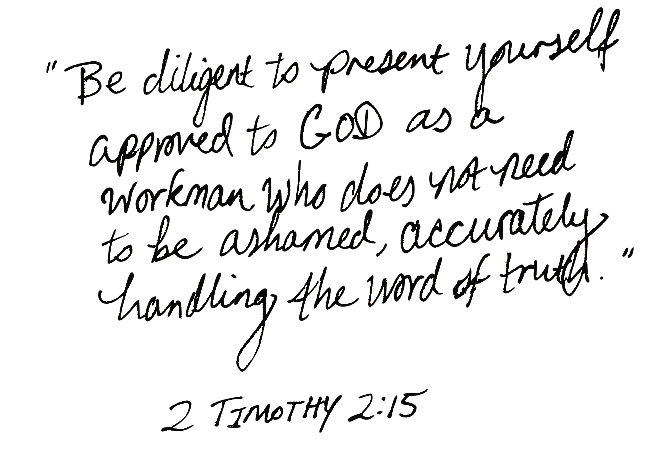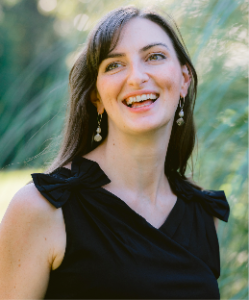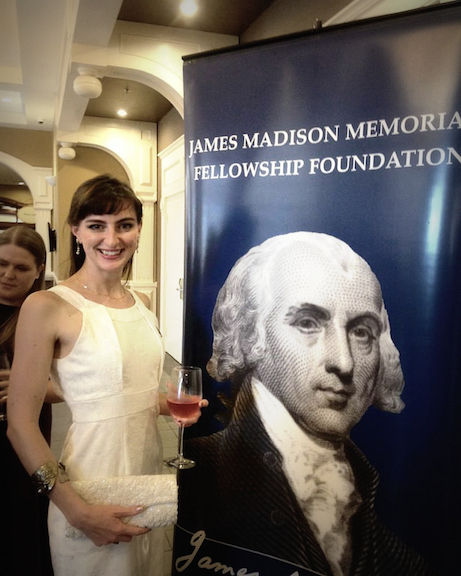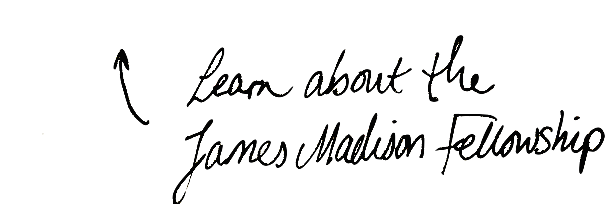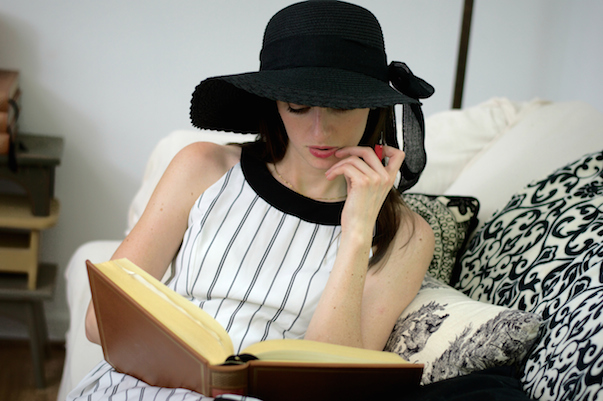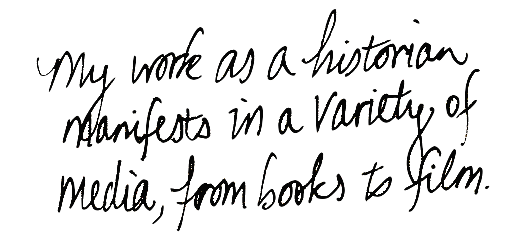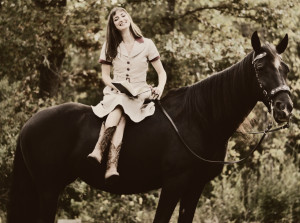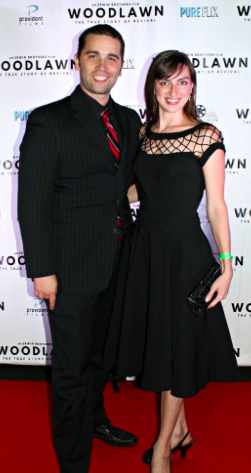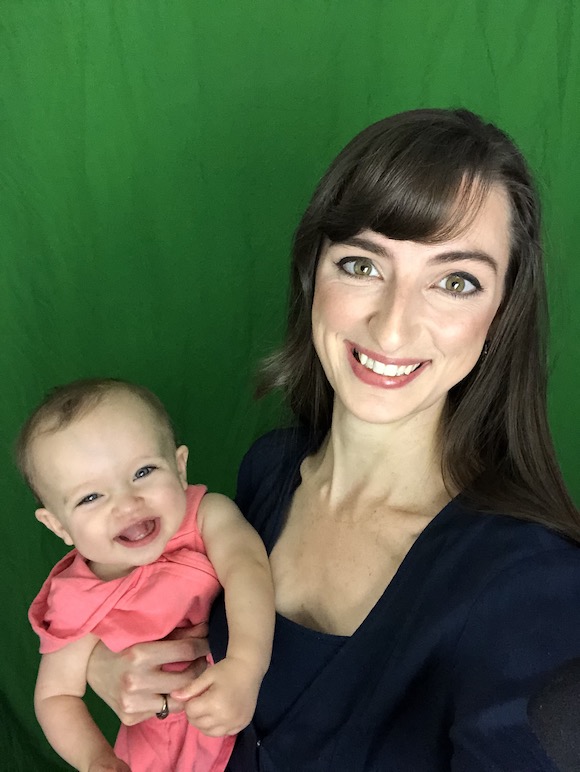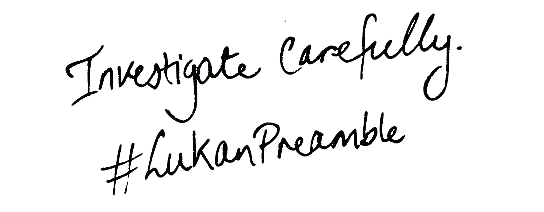
Bethany Bowra is writing a daily column for Smart Girl Politics starting Monday.
The following was interview was originally part of a Smart Girl Politics series in early 2013 and didn’t end up getting published. But some of the topics covered are still relevant today! Bethany Bowra will now be writing a daily column for Smart Girl Politics. Follow her on Twitter @BethanyBowra.
Bethany Bowra: Why did you get involved in politics?
Amanda Read: My military family has always paid attention to politics. My father was in Air Defense and then worked as a Russian linguist, so in early childhood I experienced Europe and an Islamic country in the former Soviet Union. I was a “Rush Baby,” but did not become particularly attentive to politics until I was 10 years old and witnessed the 2000 presidential election, during which I had a surprisingly detailed dream that accurately predicted the controversial results (strange child, I know). I started recording political news in my personal journal alongside my daily life experiences. It was exposure to the writings of Laura Ingalls Wilder that first got me interested in keeping a journal (I balked at forced writing assignments otherwise), because she demonstrated how memories of down-to-earth, daily life are valuable history.
My political awareness was heightened after September 11th ushered in the era of the War on Terror.
Finally, there was the Ten Commandments monument controversy at the Alabama Supreme Court which ended up ousting Chief Justice Roy Moore (who has since been re-elected to that office). I wrote an article about it for The A Place To Read Gazette, an e-newsletter I based on our family homeschool. By that time I was 13 and began to feel that writing was my calling. I wanted to inform and challenge people with the written word – especially through stories, and perhaps eventually through film.
How did you get involved?
The e-newsletter eventually fell by the wayside and I began blogging at HomeSchoolBlogger.com in 2006. I also began researching a little-known piece of scientific and political history from the Theodore Roosevelt era and I combined it with my interest in screenwriting (you can read about it at www.TheCrusadingChemist.com). By 2008, I had a couple of domain names and websites and I wrote about historical and current events as well as daily life. In 2010, Brent Heard, a published writer who went to high school with my father, noticed my writing and recommended me to Jacquie Kubin, editor of The Communities at The Washington Times, a new media outlet. I was given a column in the Politics section – “Not Your Average Read” (the title was actually invented by my younger sister, Rachel).
All of my influence has sprung from that one opportunity. From interviewing fascinating people to participating in midterm election campaigning to being quoted by Rush Limbaugh, it has been a great adventure. Through Gabriella Hoffman (who was also a WT Communities columnist) I connected with Justen Charters and became a member of the Resistance 44, a young conservative activist group now known as Rebooting America. I also became good friends with filmmaker Matthew Perdie, who is now working with me to challenge America’s hearts and minds through the subtle and powerful tool of narrative film – which brings me right back to the writing I initially wanted to pursue!
Oh, and it’s through Matthew that I know you, Bethany!
What issues have you been focused on since you became active?
I have not been very issue-specific except for doing research and writing for the pro-life organization Live Action. I suppose I’m taking a rather holistic approach to America’s ailments. I want to see homes and families strengthened across the country. I want to help people comprehend the worldviews and history behind all the policy we see initiated today.
Do we need a culture shock in the U.S.? If so, why?
We need a Great Awakening of apostolic proportions. America is becoming increasingly polarized yet has lost its compass. A patient will not seek treatment until they first realize they are sick, and a stupid person will not seek knowledge until they are made aware of their ignorance. Spiritual and cultural revival are key to awakening individuals to the reality of our national situation. We need a revitalized national conscience.
How do you feel the culture/society around you affects your political life, and vice versa?
It’s easy to feel like your worldview doesn’t matter when the air is polluted with so many conflicting ideas. What use is voting or speaking or running when the other side will always win? That’s a defeatist mentality that we should not allow to endure. However, carefully observing society can lead us to adjust our communication skills in a positive way. We’re ultimately dealing with individuals, remember. Every fellow citizen we encounter has a different set of presuppositions and experiences that affect their worldview. We need to carefully listen to individual concerns and misunderstandings rather than try to craft some mythic political strategy to use once and for all.
What are some of your favorite movies?
I love Ben-Hur (1959), since it embodies in my mind what great narrative film and literature should be – an intense personal narrative placed within and paralleling a larger Providential theme in history (and hey, it has horses and Charlton Heston!). Other movies I enjoy are Gone With the Wind, It’s A Wonderful Life, The Shop Around the Corner, Secretariat, The Lord of the Rings, The Chronicles of Narnia, Sense and Sensibility, Expelled: No Intelligence Allowed, and The Princess Bride.
What types of music do you like?
In general, I crave minor keys, energetic beats, deep lyrics, and rustic instruments. My taste is so eclectic that I listen to everything from Baroque to Classical to Blackmore’s Night to Adele to epic film soundtracks. I also listen to my sister Rachel composing original masterpieces on our antique German piano all day long. You haven’t heard of her yet, but you probably will, so I said it here first. Also, some of my best columns have been written listening to my friend Sam Clark’s music. His “Open Soul” guitar music is amazing, so be sure to check it out.
Where do you hope to be in ten years?
I hope to have some books and films under my belt, and I would love to be raising the next generation in a home of my own.
What are some of your hobbies outside politics?
My ability to get interested in just about anything has put me on a life-long quest to be a Renaissance Woman. I like drawing, painting, and calligraphy. I’ve always been interested in illustrating as well as writing. For fun, you’ll catch me doing things like painting at an easel while listening to dramatized Constitutional Convention and Federalist vs. Anti-Federalist debates on my headset (oops, that’s politics again…). I live with my eight younger siblings in Alabama and we have a smashing good time walking on the trails, riding in the canoe, fishing in the pond, playing paintball, football, and basketball, planning farm businesses, gardening, trying new recipes, reading aloud and drinking coffee, and creating funny short films. My latest investments have been in camera equipment, an apiary, and an Angora rabbitry. I collect a variety of sheet music to build up the repertoire I started in my piano lesson days. I’m working towards reading Scripture in its original languages. I want to start horseback riding again. I’m planning on creating an illuminated family cookbook. I think that would be a pretty heirloom.
Name three individuals that you feel should be leaders in the GOP moving forward.
Rand Paul, Michele Bachmann, and Bobby Jindal.
If you were stranded on an island and could only bring three items, what would you bring and why?
Hmm…probably my Bible (since man can’t live by bread alone), and then pen and a stash of paper to record everything I learn. My best dipping pen would be most practical in that case, because I could find a way to make ink. Imagine how much clarity of thought could be reached without online interruptions!
What issue poses the most danger to today’s young people, and why should teenagers care about it?
Whether John Adams said it or not, debt is one way of enslaving a nation, and the chains of our national debt are only getting tighter. The entitlement culture that teenagers are fast adapting to is a threat to our national sovereignty and security. Thomas Jefferson memorably wrote in the Declaration of Independence that “mankind are more disposed to suffer, while evils are sufferable than to right themselves by abolishing the forms to which they are accustomed.” Perhaps we are gluttons for suffering at this point in history, but one day, there will be no bail out.
What issue is most incorrectly portrayed to young people?
Good question! There is an inaccurate portrayal of every issue that is geared towards the youth vote, but I think the age-old misunderstood issue that has had the most insidious effect on the American identity is economics. Young people are easily duped into thinking that fiscal conservatism is cruel and that taxing and spending ourselves into prosperity is feasible and moral. This emotionally-charged position appeals to immaturity and mental laziness, and then taints youths’ entire perception of the roles of government, business, church, family, and individual.
Why is it important for young people to do their own research and form their own opinions rather than listen to the media?
Well America, are you surprised that the mainstream media didn’t notice the inconsistencies of Manti Te’o’s girlfriend story? Don’t be. They’ve routinely overlooked data regarding issues of far greater national importance. The only deficit most of the media is concerned about is your attention deficit. I work in new media myself, and we’re not immune to willful deception either. Many of us may be in the industry because we sincerely want to inform, but it is easy to jump the gun in the grinding hunt for viewers and readers (there’s plenty of petty, behind-the-scenes drama to go around as well). It is important to put the media in realistic context. A partisan media is actually a part of the American political tradition (just take a look at campaigning 18th century style – a usual rite of passage was to create a party newspaper). Bias is to be expected. It is important that you learn to check multiple sources and find the primary source as often as possible. When the Supreme Court issued its judgment on Obamacare, mainstream media outlets didn’t know anymore than average citizens did. Those of us who found the answers downloaded and read the Court’s opinion and dissent right off the Supreme Court website. That’s the way you have to do it when possible – go directly to the source yourself!


